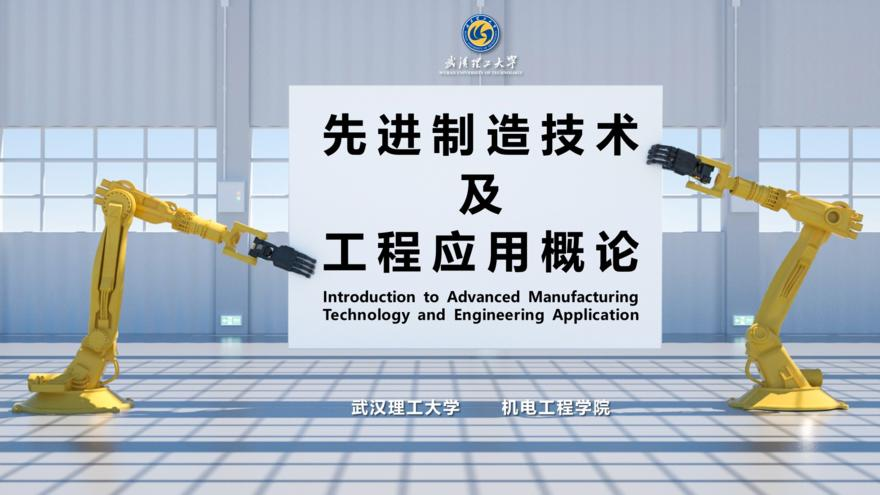
General Chemistry课程:前往报名学习
This course is an introductory course of chemistry.
开设学校:南开大学;学科:理学、
This course is an introductory course of chemistry.
-1.1 Basic Concepts
--1.1 Fundamentals of Chemistry
-1.2 Gases, Liquids and Solutions
-1.3 Errors and Significant Digits
-- Errors and Significant Digits
--1.3 Error and Significant Number
-Exercises for Chapter I
-2.1 The Law of the Motion of Microscopic Particles
--The movement law of microscopic particles
--The Movement Law of Microscopic Particles
-2.2 The Schrödinger Equations
-2.3 Radial Distribution Functions
--Radial Distribution Function
--Radial Distribution Functions
-2.4 Angular Distribution Functions
--Angular Distribution Fuctions
--Angular Distribution Function
-2.5 Factors Effecting Electron Energy
--Factors Effecting Electron Energy
--The Energy of an Electron in Atomic Orbitals
-2.6 The Periodic Properties of Elements
--The Periodic Properties of Element
--The periodic law of Elements
-Is the periodic table endless?
-Exercises for Chaper II
-3.1 Basic concepts of Chemical Bonds
-- Basic concepts of Chemical Bonds
--Basic concepts of chemical bonds
-3.2 Lewis’ Theories
-- Lewis theory
-3.3 Valence Bond Theories
-3.4 Hybrid Orbital Theories
-3.5 Valence Shell Electron Pair Repulsion Theories
--Valence Shell Electron Pair Repulsion Theory
-3.6 Molecular Orbital Theories
-The differences between valence bond theory and molecular orbital theory
-Exercises for Chapter III
-4.1 Crystal Types
-4.2 Molecular Crystal and Intermolecular Forces
--Molecular Crystal and Intermolecular Forces
-4.3 Ionic Crystal and Ionic Bonds
--Ionic Crystal and Ionic Bonds
--Ionic crystal and ionic bond
-4.4 Polarization of Ions
-4.5 Metallic Crystal and Metallic Bonds
--Metallic Crystal and Metallic Bonds
--Metallic bond and metallic crystal
-Is there pure ion bond or absolute covalent bond?
-Exercises for Chapter IV
-5.1 Basic concepts of Chemical Thermodynamics
--Basic concepts of Chemical Thermodynamics
--Basic concepts of Chemical Thermodynamics
-5.2 First Law of Thermodynamics
-5.3 Third Law of Thermodynamics
-5.4 Second Law of Thermodynamics
--Second Law of Thermodynamics
--Second Law of Thermodynamics
-It‘s too hot! Let‘s open the refrigerator!
-Exercises for Chapter V
- 6.1 Chemical Reaction Rate and Expression
--Chemical Reaction Rate and Expression
--Chemical Reaction Rate and Expression
-6.2 Effects of External Conditions on Reaction Rate
--Effects of External Conditions on Reaction Rate
--Effects of External Conditions on Reaction Rate
-Exercises for Chapter VI
-7.1 Chemical Equilibrium Constant
--Chemical Equilibrium Constant
--Chemical Equilibrium Constant
-7.2 Shifting of Chemical Equilibrium
--Shifting of Chemical Equilibrium
--Shifting of Chemical Equilibrium
-Exercises for Chapter VII
-8.1 The Development of Acids & Bases Theories
--The Development of Acids & Bases Theories
--The Development of Acid-Base Theory
-8.2 Weak Acids & Bases Ionization Equilibria
--Weak Acids & Bases Ionization Equilibria
--Weak Acid and Weak Base Dissociation Balance
-Exercises for Chapter VIII
-Precipitation-Dissolution Equilibrium
-The Equilibrium of Precipitation
-Exercises for Chapter IX
-How to remove the insoluble CaSO4?
-10.1 Basic Concepts of Oxidation-Reduction Reactions
--Basic Concepts of Oxidation-Reduction Reactions
--Basic Concepts of Oxidation-Reduction Reactions
-10.2 Primary Cells and Electrode Potential
--Primary Cells and Electrode Potential
--Primary Cells and Electrode Potential
-10.3 Thermodynamics of Cell Reactions and the Factors Affecting Electrode Potential
--Thermodynamics of Cell Reactions and the Factors Affecting Electrode Potential
--Thermodynamics of Cell Reactions and the Factors Affecting Electrode Potential
-10.4 The Applications
-Exercises for Chapter X
-11.1 Basic Concepts of Coordination Compounds
--Basic Concepts of Coordination Compounds
--Basic Concepts of Coordination Compounds
--Basic Concepts of Coordination Compounds
-11.2 Stereochemistry of Coordination Compounds
--Stereochemistry of Coordination Compounds
--Stereochemistry of Coordination Compounds
-11.3 Bonding Theories of Coordination Compounds — Valence Bond Theories
--Bonding Theories of Coordination Compounds — Valence Bond Theories
--Bonding Theories of Coordination Compounds — Valence Bond Theories
-11.4 Bonding Theories of Coordination Compounds — Crystal Field Theories
--Bonding Theories of Coordination Compounds — Crystal Field Theories
--Bonding Theories of Coordination Compounds — Crystal Field Theories
-11.5 Stability and Equilibrium Coordination Compounds
--Stability and Equilibrium Coordination Compounds
-- Stability and Equilibrium Coordination Compounds
--Complex Stability and Coordination Equlibrium
-Exercises for Chapter XI
-12.1 The Origins of Elements
-12.2 The Main Group Elements — s-block
--The Main Group Elements — s-block
--The Main Group Elements — s-block
-12.3 The Main Group Elements — p-block
--The Main Group Elements — p-block
--The Main Group Elements — p-block
-12.4 The Transition Metal Elements — d-block and ds-block
--The Transition Metal Elements — d-block and ds-block
--The Transition Metal Elements — d-block and ds-block
-12.5 The Rare Earth Elements — f-block
--The Rare Earth Elements — f-block
--The Rare Earth Elements — f-block
-Exercises for Chapter XII
邱晓航,博士,教授。毕业于南开大学化学系,现任化学国家级实验教学中心(南开大学)主任。长期从事本科生教学,主讲《化学概论》、《无机化学》、《基础无机化学实验》、《改变世界的化学》等课程,承担多项各级教学改革项目,作为主要完成人获得天津市教学成果一等奖两项,获得2018年度宝钢优秀教师奖,2014年南开大学名师奖。
马建功,博士,教授,博士生导师,南开大学青年学术带头人。2003年和2006年分别获得南开大学学士、硕士学位。2011年获德国柏林工业大学博士学位。讲授《化学概论》、《功能配合物化学》等课程。作为负责人和骨干先后承担了国家基金委重点与面上基金项目、科技部“十三五”重点研发计划课题、天津市重点与面上项目等多项国家与省部级科研项目。入选了教育部青年人才项目、天津市青年拔尖人才、天津市创新人才推进计划、天津市“用三年时间引进千名以上高层次人才”等计划,获得了2017年度天津市自然科学一等奖。指导本科生创新项目曾获天津市挑战杯特等奖、全国大学生挑战杯三等奖等奖项。
朱宝林,女,博士,南开大学副教授,美国明尼苏达大学访问学者。主讲《化学概论》和《基础无机化学实验》,并指导无机化学实验。一直从事一维TiO2等金属氧化物的修饰及性能方面的研究,主持国家和天津市自然科学基金项目各1项,发表科研论文100余篇。
